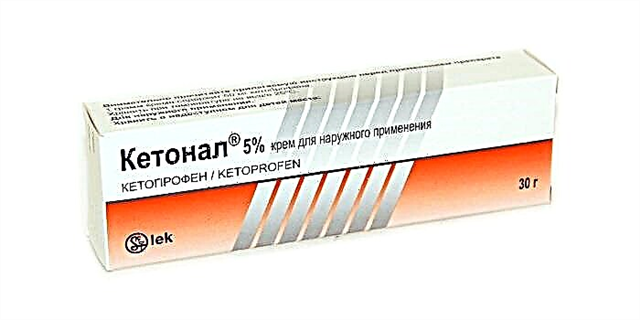
Antibiotics are one of the groups of drugs used to treat coughs and runny nose. They are not always prescribed, but there are situations when such drugs are justified and very necessary. Let's figure out when an antibiotic is needed for a sick child and which of the drugs in this group can be given in childhood.

Is the reception advisable?
In many cases of diseases occurring with cough and runny nose, the prescription of antibiotics is justified, since the cause of such diseases in children is pathogenic bacteria. However, the doctor should make sure that it is necessary to take antimicrobial agents, because antibiotics will not help either with a viral infection, or with an allergic reaction, or with mechanical irritation of the nasopharynx and respiratory tract.
Most often, the appearance of a cough, which is combined with a runny nose, fever, headaches, weakness and lethargy, is characteristic of a viral infection. If, in this case, you give the baby an antibiotic, there will be nothing but the risk of dysbiosis and allergies, that is, the child will not only not recover faster, but his condition may worsen.
The following signs will tell you about the bacterial nature of the disease, manifested by a cough:
- An increase in body temperature over + 38 ° C for more than three days.
- An increase in the number of leukocytes in the general blood test. At the same time, the number of neutrophils increases and the leukogram "shifts" to the left.
- Severe intoxication and shortness of breath.
- Long duration of the disease.

If the general condition of the child improves, the body temperature decreases, but the cough remains, there is no reason to give the child an antibiotic, since such a protective symptom as cough disappears last and can last even several weeks after the end of the acute phase of the disease. Note that if the cough lasts more than 3-4 weeks, the child must be shown to the doctor in order to find out the reason for such a prolonged manifestation of the cough reflex.
Indications
The use of antibiotics for coughing is necessary when:
- Bronchitis caused by bacteria.
- Inflammation of the lungs.
- Angina.
- Purulent tracheitis.
- Respiratory tract damage caused by chlamydia or mycoplasma.
- Pleurisy.
- Tuberculosis.

How to choose an antibiotic for coughing
The most correct behavior for suspected bacterial infection is to conduct tests, among which special attention is paid to sputum culture. Such a culture will not only confirm that the disease is caused by bacteria, but also establish which microorganisms, and also find out which antibiotics they are sensitive to.
However, the results of such tests do not always come quickly, and the child's very poor health may force him to start treatment immediately. In such cases, drugs are prescribed that have a wide range of effects.
Choosing the right drug, the doctor will certainly take into account the child's weight and age, since at 6 or 7 years old, one can prescribe some drugs, and the selection of a medicine for children who are 2 or 4 years old will be limited by their age range.

Usually, one antibiotic is prescribed, which, for diseases of the respiratory tract, is often presented as a suspension, powder or tablets. If the disease is severe, the child will be shown injections of an antibacterial drug.
Drug overview
Children with cough and runny nose caused by a bacterial infection are most often prescribed drugs of the group:
- Penicillins. Such drugs are prescribed first for bacterial infections with cough and runny nose, since they can be taken at different ages - both for children under one year old and for babies at 3 years old, at 8 or at 10 years old. If they are ineffective, then drugs of other groups are prescribed. Among all penicillin drugs, amoxicillin is most often used in pediatrics. The child can be prescribed Flemoxin Solutab, Ospamox, Augmentin, Amoxiclav.
- Cephalosporins. These drugs are prescribed in the absence of an effect from taking antibiotics of the penicillin series, as well as in situations where the child has recently been treated for a bacterial infection. These drugs include Cefuroxime, Cefotaxime, Suprax, Cefixime.
- Macrolides. These are powerful medications that work well against respiratory tract infections. Among them, children are prescribed Sumamed, Macropen, Clarithromycin, Klacid, Azithromycin, Rulid.
Rules for taking antibiotics for coughing
- It is important to take antibacterial drugs by the hour, since each drug has its own period of action. Each subsequent dose will maintain the desired concentration of the drug in the blood, which affects the bacteria.
- It is unacceptable to change the dosage prescribed by the doctor. If a child is given the drug in a lower dose, the treatment will be ineffective and may result in the development of resistance to this drug. Increasing the dose will not help cure the disease faster, but can cause an allergic reaction and the development of various side effects.
- You cannot stop taking the antibiotic earlier than the doctor has prescribed. If the pediatrician said to take the medicine for 7 days, and already from the 3-4th day the child feels much better, the antibiotic must still be taken for all 7 days in order to prevent the recurrence of the symptoms of the disease and the emergence of resistance of the pathogen to the drug used.

What to do if cough persists after antibiotics?
The ineffectiveness of using an antibiotic for coughing can be due to:
- Failure to comply with the required dosages.
- Interruption of treatment (missed appointments).
- Inappropriate medicine (does not act on the pathogen).
If the antibacterial drug and its dosage are selected correctly, a pronounced positive trend is observed in the child - in just a few days the cough disappears, chest pains decrease, breathing is facilitated. If no improvement is noted within 48 hours from the start of taking the antibiotic, a doctor should be called to examine the child and change the drug.




